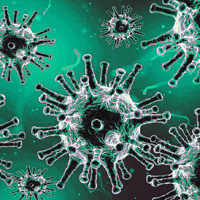Psychological outcomes after hospitalization for COVID-19: data from a multidisciplinary follow-up screening program for recovered patients

Accepted: November 4, 2020
HTML: 31
All claims expressed in this article are solely those of the authors and do not necessarily represent those of their affiliated organizations, or those of the publisher, the editors and the reviewers. Any product that may be evaluated in this article or claim that may be made by its manufacturer is not guaranteed or endorsed by the publisher.
Authors
Patients who are hospitalized for COronaVIrus Disease 2019 (COVID-19) face an extremely stressful experience that might challenge their mental health. The study aims to describe the psychological condition of recovered patients, focusing on anxiety and depression symptoms, as well as post-traumatic stress. All the recovered COVID-19 patients who accessed to a multidisciplinary followup screening program scheduled within two months after their hospital discharge were included. As far as the psychological assessment, patients completed the Hospital Anxiety and Depression Scale and the Impact of Event Scale-Revised for post-traumatic stress. Socio-demographic and clinical data (days of hospitalization, intensity of received care, and number of supportive sessions with the hospital psychologist after the hospitalization) were collected. Descriptive, correlation and regression analyses were conducted. The sample includes 261 patients (68.2% men), aged between 23 and 90 (mean=58.9 st. dev=13.3). High numbers of patients reported anxiety (28%) and depression symptoms (17%), as well as post-traumatic stress (36.4%). Impaired outcomes were associated with female gender, while patient’s age was found to be negatively correlated with anxiety symptoms. 13.8% of patients underwent a psychological visit and 6.1% of them were taken in charge for psychological support. Few months after hospital discharge, individuals recovered by COVID-19 reported negative consequences on their mental health. Understanding the impact that COVID-19 and hospitalization have on recovered patients may provide insights about how to develop an effective psychological intervention to help them deal with such psychological distress and prevent further psychopathological effects.
How to Cite

This work is licensed under a Creative Commons Attribution-NonCommercial 4.0 International License.
PAGEPress has chosen to apply the Creative Commons Attribution NonCommercial 4.0 International License (CC BY-NC 4.0) to all manuscripts to be published.
Similar Articles
- Elsa Ronningstam, Mark Schechter, Benjamin Herbstman, Mark Goldbalatt, Chronic suicidal ideations: a risk or a protection , Research in Psychotherapy: Psychopathology, Process and Outcome: Online Advance Publication
You may also start an advanced similarity search for this article.

 https://doi.org/10.4081/ripppo.2020.491
https://doi.org/10.4081/ripppo.2020.491




